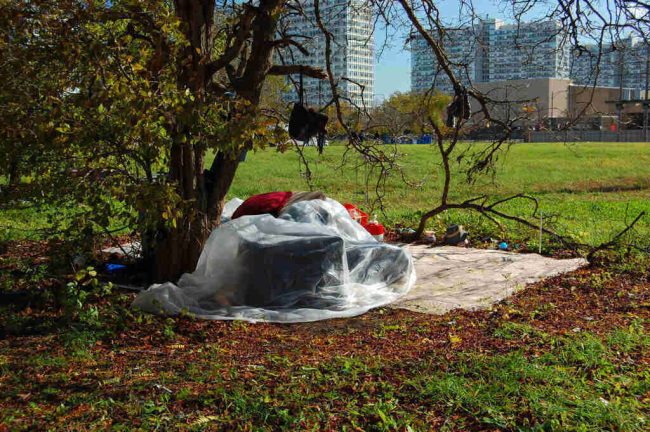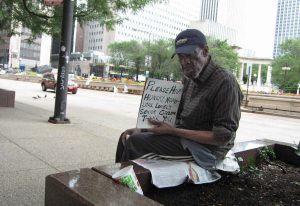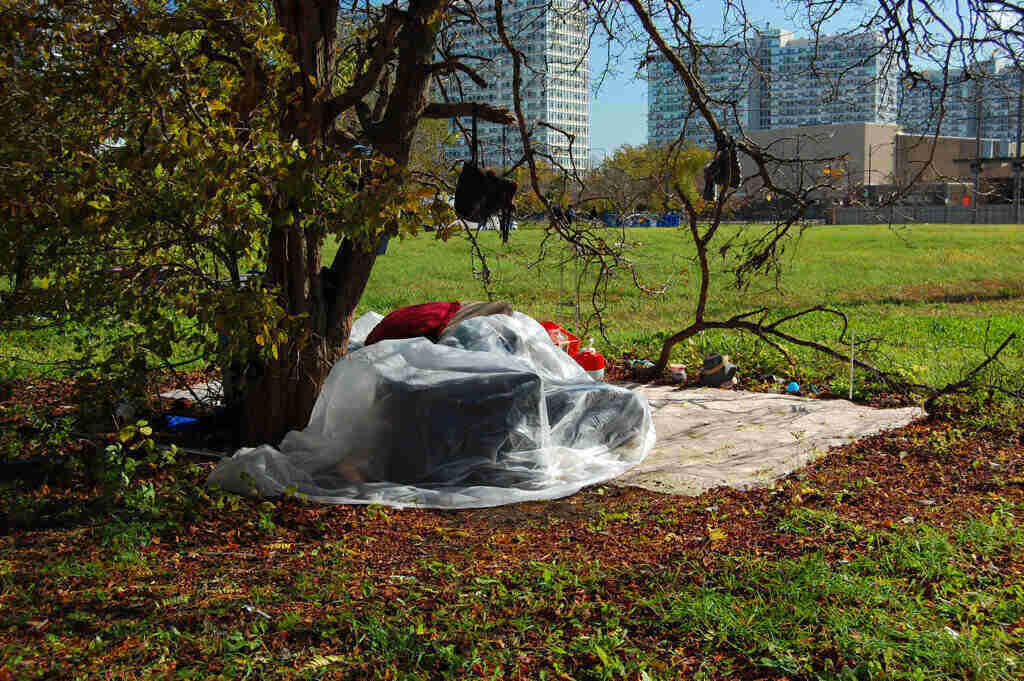|
Getting your Trinity Audio player ready...
|

Chicago is finally taking action to address the homeless population on its streets. Across the country, several of America’s biggest cities are seeing homelessness reach critical levels. But even as housing prices take off, Mayor Lori Lightfoot is working to keep people off of the streets. Her Recovery Plan allots $1 billion to expand people’s access to housing all over Chicago.
Marisa Novara, the Chicago Housing Commissioner stated, “The department of housing received $30 million in Chicago recovery funds, and what we intend to do with that is acquire hotels and motels that, it appears, are not going to reopen as such, post-COVID.” The housing department also spent $170 million to support people struggling to pay rent. Novara further explained the plan, “It’s affordable to people at a range of incomes, generally from about $55,000 for a family of four on down.”
Department of Family and Support Services
The Department of Family and Support Services is doing its part as well. They are moving the homeless from the streets to inside shelters. Brandie Knazee, the Chicago Department of Family and Support Services Commissioner, said, “It’s not illegal to live in the street in Chicago. Our role is really to provide outreach and supportive services, so we have what we call an encampment strategy where we’ll go to a location for up to ten days bringing government resources.”

Department of Public Health
The Chicago Department of Public Health has also worked hard to fulfill the intent of the Recovery Plan. Homelessness in Chicago is seeing medical aid as 70% of people moved to shelters received the COVID-19 vaccine. The Chicago Commissioner of Public Health, Dr. Allison Arwady, notes, “To my knowledge, that is the best that any city did.”
With all three of these essential departments of Chicago working in unison, homelessness in the city is seeing change. Dr. Arwady added, “We’ve been able to do it with federal COVID funding, but is that the sort of thing we’ll continue to support sort of as a society? We think yes. it means recognizing that funding public health does not mean funding for a disease, it means funding to meet the basic health needs of the population.”
The Issue
Homelessness is a real issue and now Chicago is solving it in real-time. Homelessness in big cities is always an issue, but Chicago leadership is starting to ask if it has to be. Other people look at Chicago and think of crime and violence. But now, Chicago is solving a deep-rooted issue that affects the whole world. Before coronavirus, instability in housing affected 58,000 people in Chicago.
In August 2021, the Chicago Coalition for the Homeless released its annual study. They estimated that 58,273 residents were homeless in 2019. The data showed that 71% of Chicago’s homeless citizens were living in the homes of others due to hardship. Most of the time the doubled-up living situation resulted in overcrowded conditions.
Data from the U.S. Census Bureau’s American Communities 2019 Survey showed there were 41,330 people living doubled-up in Chicago. Of those individuals 51% were Black, 31% were Hispanic/Latino, and 28% were white.
That same year 22,182 individuals utilized Chicago’s homeless service system. Twenty-four percent of those people reported they were temporarily living with others at least once. Of those who used the homeless service system in 2019, 78% were black, 10% Hispanic/Latino, 17% white, and 2% reported as other.
There were 17,150 families with children homeless in 2019. Of those, 68% (11,651) were doubled-up. A total of 12,913 minor youth experienced homelessness in 2019. The data showed there was a total of 13,966 unaccompanied youth between the ages of 14 to 24 homeless in 2019. Of those, 91% (12,706) were living in a doubled-up situation.
Upwards of 4,000 people are sleeping on the streets on any given day and every night. Subsidized housing was built near the Blue Line. It was made affordable so that normal people who don’t earn much can have transportation. The investment made in this project is the largest in Chicago’s history. There are 7 million people who rent homes that cannot afford housing right now, according to the National Low-income Housing Coalition.
With all of these efforts coming together, there are still some gaps. For example, who is providing the necessary support and wrap-around services to help move people, especially families, out of homelessness and into stable housing and stable lives? How are we meeting the ever-present and growing need for transitional housing for citizens returning from jail or prison? How are we supporting the specific housing needs of victims of domestic abuse seeking safe housing to rebuild their lives?
Right now every shelter is tapped out in space and the demand is growing. And how do we meet the needs of those immigrants, especially those fleeing gangs, cartels, and political violence in their own countries? The city and government can do only so much, and there is a great need for communities, agencies, faith communities, foundations, and businesses to step up to be part of the solution. Safe and livable housing is a basic human right, a right yet unfulfilled by our society.
Written by Malachi Brown and Father Larry Dowling
Edited by Sheena Robertson
WGN9 News Chicago: Chicago’s comprehensive push to address homelessness prevents pandemic crisis seen in other major cities; Mike Lowe
Chicago Sun-Times: Advocates for homeless pressure Council members Ervin, Waguespack to support ballot question to fund housing; Michael Loria
CBS Local News Chicago: New men’s homeless shelter in Rogers Park has green light, but not everyone likes the idea; Marybel Gonzalez
Chicago Coalition for the Homeless: Frequently Asked Questions About Homelessness
Featured Image Courtesy of Eric Allix Rogers‘ Flickr Page – Creative Commons License
Inset Image Courtesy of Images Alight‘s Flickr Page – Creative Commons License



